QuestionI have had a male betta in a community tank for 2 years. Up until a week ago he was fine, eating well, flaring and charging the other fish playing with them. First he just started laying in the top of the cabomba plant and not swimming much but eating good. Then he got to where he could only lay on his side and not able to swim to the top of the tank very well. Now he sits on his tale at the bottom of the tank with his head pointing upwards or lay in the top of the cabomba with his heat at the surfact of the water taking frequent fresh air breaths and laying on his side in the plant. I have treated him with a round of ampicillin and then tetracycline. He picked up a little bit after the tetracycline but then went back to the way he was. Right now I have him in a breeder box so he can be closer to the surface of the water. Can you please tell me what's wrong with my betta?
AnswerMarie,
Sorry to hear your fish isn't well. Sounds like he has whats called swim bladder disease. Fish have an organ that helps them stay straight and swim. When there is something wrong with it, they have trouble. This is usually caused by over feeding and poor water quality. Don't fret though, most of the time it is easy to take care of. I would remove him from the main tank and place him in your hospital tank. Fast him for 2 days. On day 3, get a frozen pea and thaw it out in warm water. When thawed, remove the outer shell and toss it. You want to feed him the inside of the pea. Cut it in small pieces and feed that to him. Don't worry if he doesn't eat it the first time you offer it to him. Peas are a natural laxative for fish. Make sure you feed your Betta a variety of different foods, such as, frozen or freeze dried blood worms, frozen or freeze dried blood worms, flakes and pellets. Make sure, when you feed him pellets, you take some of his tank water and put it in a cup. Add the pellets and let them soak in the water about 10 to 15 minutes before you feed it to him. That way the food sinks, ensuring he doesn't get air in him stomach. This will help cut down his chances of getting swim bladder disease. Also, frequent water changes, a heater, and fasting him 1 day of the week will also help him. Hope this helps.

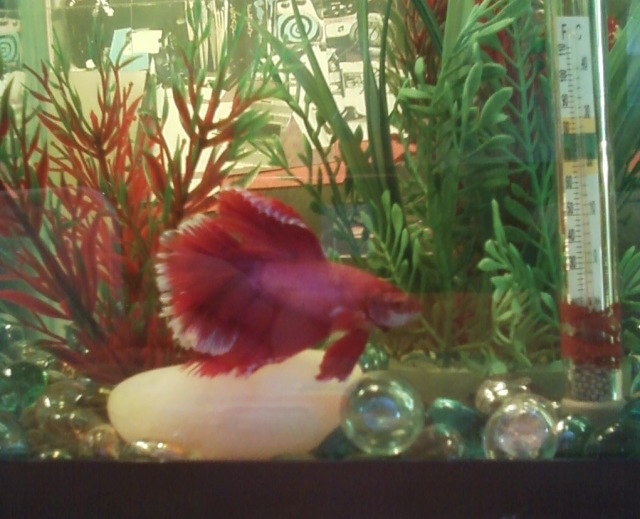 Half-Moon Tail Beta
QuestionPhillip
QUESTION: I have a Half Moon Tai
Half-Moon Tail Beta
QuestionPhillip
QUESTION: I have a Half Moon Tai
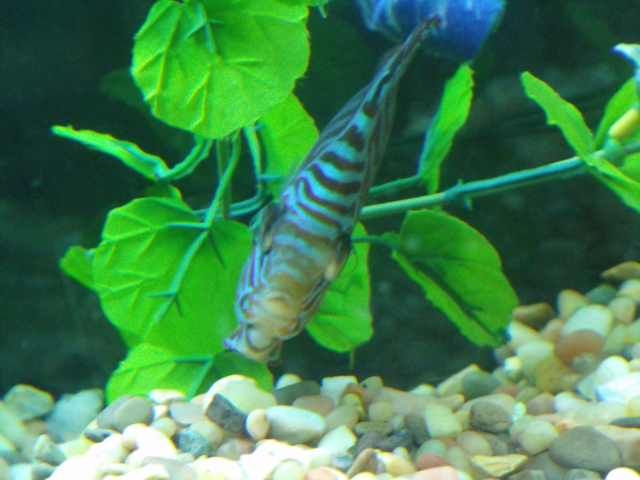 Discus with popeye not eating
Questionpopeye, possible hole
QUESTION: I was d
Discus with popeye not eating
Questionpopeye, possible hole
QUESTION: I was d
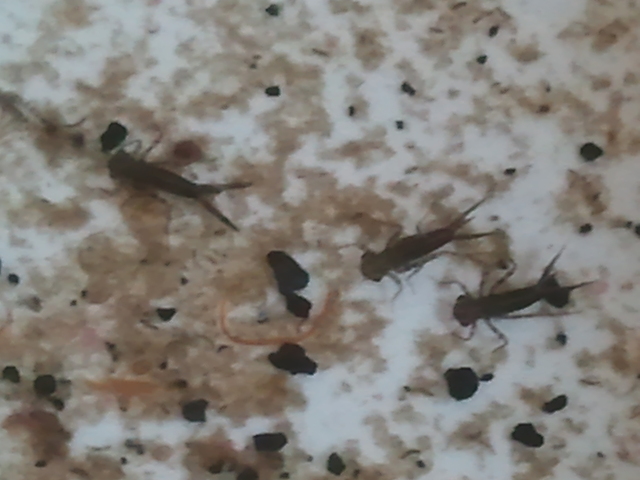 Found brown bugs in my filter!
Question
Bugs in tank
I cant find this answer an
Found brown bugs in my filter!
Question
Bugs in tank
I cant find this answer an
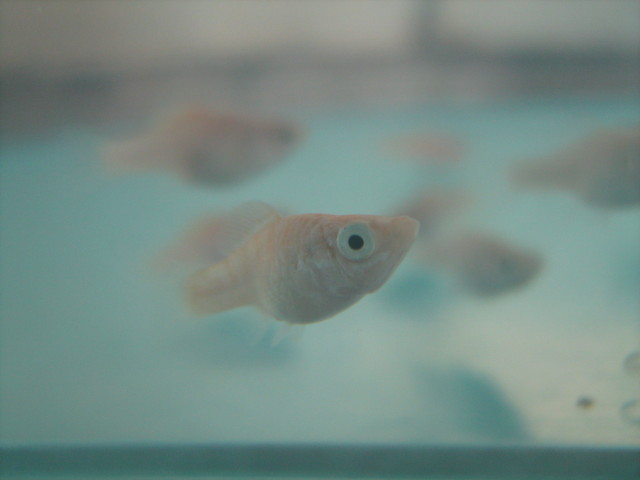 balloon molly fish
Questionmy baby balloon mollys
QUESTION: hi, i a
balloon molly fish
Questionmy baby balloon mollys
QUESTION: hi, i a
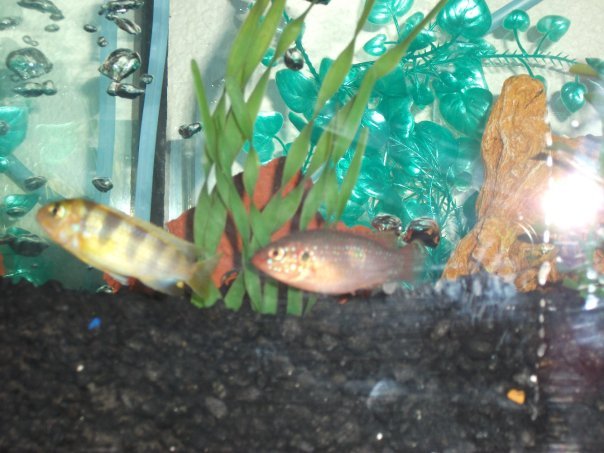 Identifying a fish
Question
Unknown cichlid
Richard, I have searched and s
Identifying a fish
Question
Unknown cichlid
Richard, I have searched and s